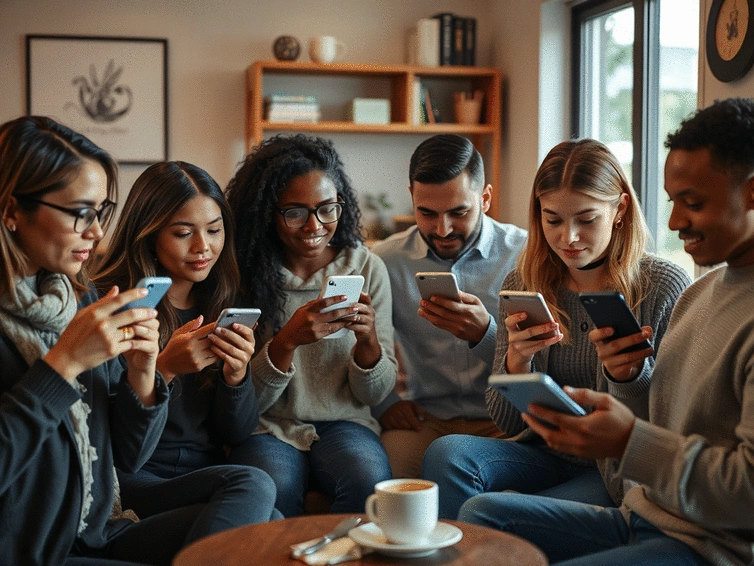
Social Media's Impact on Culture
What if the next viral trend on social media could change the world? Social media has reshaped our interactions and cultural identities in ways we often overlook. Understanding these dynamics is crucial for navigating today’s digital landscape.
What You Will Learn
- Social media facilitates instant communication, allowing trends to emerge and evolve in real-time.
- The global reach of social media can unify diverse individuals around common cultural movements, such as #MeToo or Black Lives Matter.
- Algorithms influence the spread of content, shaping cultural perceptions and behaviors based on engagement metrics.
- Influencers play a critical role in driving cultural change by fostering authenticity and bridging cultural gaps.
- Long-term social media use can impact personal identities, leading to peer validation pressures and potential cultural appropriation.
- Practicing media literacy is essential for critical engagement with content, helping users discern credible sources and diverse perspectives.
Social Media's Impact: Cultural Exchange & Identity
Social media significantly influences cultural exchange and identity, acting as a global platform for rapid communication and trend adoption. Below, we explore key areas of its impact.
Understanding the Role of Social Media in Cultural Trends
In today’s fast-paced digital landscape, social media has become a powerful force shaping our cultural trends. From fashion to language, the influences we absorb online are transforming how we communicate and interact. At Likers Network, we dive into these dynamics, examining how social media not only reflects but also drives cultural exchange across the globe!
As we explore the complexities of online engagement, it's crucial to understand the mechanisms behind cultural shifts. Social media platforms facilitate rapid sharing and interaction, creating a space where ideas can flourish or fizzle out almost instantly. But how exactly does this happen? Let’s discuss!
How Social Media Influences Cultural Exchange and Trends
Social media plays a pivotal role in setting and shifting cultural norms. It’s a melting pot of voices, ideas, and expressions that resonate with diverse audiences. Here are some ways it facilitates cultural exchange:
- Instant Communication: Users can share thoughts and trends as they happen, fostering real-time conversations.
- Global Reach: A meme or trend can go viral across continents, connecting people from different backgrounds.
- Accessibility of Content: Platforms allow for easy sharing of art, music, and cultural practices that enrich global dialogue.

These factors contribute to how social media shapes our collective cultural consciousness. It’s fascinating to see how something as simple as a trending hashtag can spark movements that redefine societal norms!
The Mechanisms Behind Cultural Exchange on Social Media
Understanding how cultural exchange works online can help us appreciate its impact. Factors like algorithm-driven content distribution affect what we see and share. Algorithms tend to promote engaging posts, which can lead to the rapid spread of certain cultural elements. As a result, the content we consume can shape our perceptions and even influence our daily behaviors.
Moreover, the interactive nature of social media facilitates discussions that were once confined to private settings. We now have platforms where cultural narratives can be challenged, reshaped, and amplified, leading to a richer tapestry of global culture!
Case Studies: Social Media Movements that Shaped Cultural Trends
Let’s look at some notable movements that illustrate the profound influence of social media:
- #MeToo: A powerful movement raising awareness about sexual harassment and assault, showing the strength of collective voices.
- Black Lives Matter: This ongoing movement has utilized social media to advocate for racial justice, significantly shaping public discourse.
- Climate Change Activism: Campaigns like #FridaysForFuture have mobilized youth globally, demonstrating how social media can galvanize action.
Each of these examples showcases how social media can unify individuals around shared causes, driving societal changes that resonate deeply within various communities.
The Role of Influencers in Driving Cultural Change
Influencers on social media hold significant sway over cultural trends. They can launch products, popularize styles, or even shift public opinion with a single post! Here’s how they contribute:
- Authenticity: Influencers often share personal stories that resonate with their followers, making their messages feel genuine.
- Audience Engagement: They engage directly with their followers, creating opportunities for dialogue and feedback.
- Cultural Bridging: Influencers often act as intermediaries, introducing their audiences to new cultural practices and ideas.
At Likers Network, we recognize the importance of these figures in shaping our understanding of modern culture. Their impact is profound, as they help create spaces where ideas can thrive and evolve.
Political Discourse and Public Opinion Formation
Social media is not just a cultural playground; it’s a vital arena for political discourse and public opinion formation. The way we engage with political content online can significantly influence our perspectives and actions. For instance, social media platforms have been observed to play a significant role in modern-day political culture and policy-building, as detailed in a study published in the Global Media Journal.
Let's delve into the nuances of how social media affects our political landscape!
Pro Tip
Did you know? Engaging with diverse cultural content on social media can enhance your understanding and appreciation of different perspectives. Make it a habit to follow accounts that share unique cultural insights and experiences; this not only broadens your horizons but also fosters a more inclusive online community.
Summarizing the Impact of Social Media on Society
Social media has woven itself into the fabric of our daily lives, shaping our values, beliefs, and even our cultural identities. As a digital strategist, I've seen firsthand how these platforms create powerful avenues for connection and expression. But what are the long-term effects of social media on our cultural identity? Let’s explore this important question.
Long-term Effects of Social Media on Cultural Identity
The pervasive nature of social media can significantly influence how we perceive ourselves and our identities. The psychological impact on users is profound and multifaceted. With constant exposure to diverse cultures and opinions, individuals may feel pressured to adapt or conform to trends highlighted online. This can lead to a sense of belonging, but it can also foster confusion about one’s true identity.
- Identity exploration through curated profiles
- Influence of peer validation and social comparison
- Potential for cultural appropriation and misunderstanding
These factors play a crucial role in how we form our cultural identities. It’s essential to reflect on how our online interactions shape our views and self-perceptions. This exploration of identity is as much a journey as it is a challenge, prompting us to question who we are in a digitally-driven society.
Understanding the Psychological Impact on Users
Social media can act like a double-edged sword, offering opportunities for connection while also presenting risks for mental health. Research indicates that the constant flood of information and engagement can lead to feelings of anxiety and inadequacy. For example, a 2023 report by Pew Research Center highlighted significant concerns among teens regarding the impact of social media on their well-being. Users may find themselves caught in a cycle of seeking likes and validation, which can impact self-esteem and overall well-being.
- Increased instances of anxiety and depression linked to social media use
- Need for digital detox to foster mental wellness
- Encouragement of positive digital habits to enhance user experience

As a community-driven platform, Likers Network emphasizes the importance of understanding these psychological nuances. By encouraging open discussions about mental wellness, we can better navigate the complexities of social media engagement and its effects on our identities.
Cross-Cultural Comparisons: A Global Perspective
When examining the impact of social media on cultural identity, it's enlightening to consider a global perspective. Different cultures engage with social media in unique ways, shaping their identities through varied lenses. This diversity can lead to rich exchanges, but it also raises important questions about representation and authenticity.
- Variations in content consumption across cultures
- How cultural values influence social media behavior
- The potential for fostering global understanding through shared experiences
By analyzing these cross-cultural dynamics, we can uncover a wealth of knowledge about how social media shapes our global community. As we continue to share and learn from one another, we foster cultural appreciation rather than appropriation.
The Role of Digital Footprint in Shaping Cultural Identity
Every post, like, and share contributes to our digital footprint, which ultimately shapes our cultural identity. This footprint is more than just data; it represents our online personas and how we wish to be perceived. In a world where digital presence often overlaps with real-world interactions, understanding this relationship is vital.
- The permanence of online content and its implications
- How digital footprints influence personal branding and opportunities
- Strategies for managing online identities responsibly
At Likers Network, we encourage users to be mindful of their digital footprints. By fostering a conscious approach to online sharing, we can empower individuals to curate their identities in a way that reflects their true selves while embracing the benefits of social media engagement.
Frequently Asked Questions
How does social media influence cultural exchange?
Social media influences cultural exchange through instant communication, global reach, and the accessibility of diverse content. It allows trends, ideas, art, and music to be shared rapidly across continents, fostering real-time conversations and connecting people from different backgrounds.
What role do algorithms play in cultural trends on social media?
Algorithms play a crucial role by influencing the spread of content. They tend to promote engaging posts, which can lead to the rapid dissemination of certain cultural elements, thereby shaping users' perceptions and behaviors based on engagement metrics.
How do influencers drive cultural change?
Influencers drive cultural change by fostering authenticity through personal stories, engaging directly with their audience, and acting as intermediaries to introduce new cultural practices and ideas. Their significant sway can launch products, popularize styles, and shift public opinion.
What are the long-term psychological impacts of social media on personal identity?
Long-term social media use can lead to identity exploration through curated profiles, pressure from peer validation and social comparison, and potential cultural appropriation. Psychologically, it can cause increased anxiety and inadequacy due to the constant flood of information and the pursuit of online validation.
Why is media literacy important when using social media?
Media literacy is essential for critical engagement with social media content. It helps users discern credible sources, identify biases, and understand diverse perspectives. Practicing media literacy empowers users to navigate the digital landscape responsibly and consume content thoughtfully.
What measures are being taken to regulate social media and combat disinformation?
Efforts are being made globally to regulate social media platforms and combat online disinformation. For example, UNESCO has unveiled an action plan to address these issues, highlighting the growing recognition of the need for responsible digital governance.
Taking Action: Enhancing Media Literacy
As we navigate the complexities of social media, enhancing media literacy becomes increasingly important. It’s not just about consuming content; it's about understanding and critically engaging with it. Here are some practical tips to help you become a more informed consumer of social media.
Practical Tips for Critical Consumption of Social Media Content
To cultivate a discerning eye when consuming content, it's crucial to develop critical thinking skills. Here are some actionable strategies:
- Verify sources before sharing content
- Be aware of your biases and how they affect your interpretations
- Engage with diverse perspectives to broaden your understanding
By applying these tips, you can actively enhance your media literacy and navigate the digital landscape with confidence. As we engage in discussions at Likers Network, I invite you to share your insights and experiences regarding media consumption!
Encouraging Responsible Sharing and Engagement
Responsible sharing is vital in shaping a positive online community. Each of us has the power to influence others' perceptions and experiences through our actions. Consider these practices for promoting responsible engagement:
- Share content that adds value or encourages dialogue
- Support creators who promote positive messages and authenticity
- Reflect on the impact of your online behavior on others
By fostering an environment of responsible sharing, we can create a digital space that uplifts and educates. This aligns perfectly with our mission at Likers Network—empowering users to navigate social media thoughtfully and purposefully.
Building Media Literacy in Online Communities
Finally, it's essential to advocate for media literacy within our online communities. This can happen through workshops, discussions, and sharing resources that elevate collective understanding. Here are some ideas to get started:
- Host virtual events focused on media literacy topics
- Encourage community members to share their knowledge and skills
- Create resource lists for critical engagement and safe social media practices
Building media literacy together not only enhances our own experiences but also strengthens our community. At Likers Network, we believe that informed users can drive positive change in the digital landscape, fostering a future where social media serves as a tool for connection and growth.
Recap of Key Points
Here is a quick recap of the important points discussed in the article:
- Influence on Cultural Exchange: Social media enables instant communication, global reach, and easy content accessibility, fostering cultural exchange.
- Impact of Influencers: Influencers shape trends by sharing authentic stories, engaging with audiences, and bridging cultural gaps.
- Psychological Effects: Social media can lead to anxiety and self-esteem issues due to the pressure of online validation and comparison.
- Media Literacy: Critical consumption of social media content is essential; verify sources and engage with diverse perspectives.
- Responsible Engagement: Promote positive sharing practices to foster a supportive online community and enhance digital well-being.

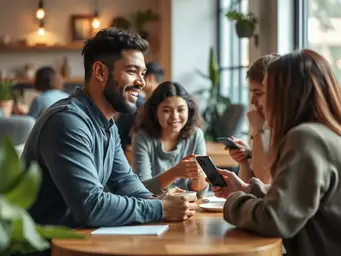
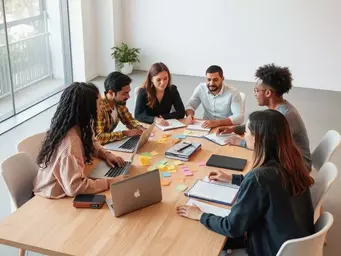
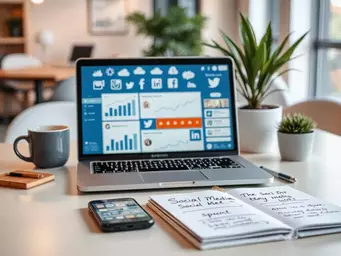
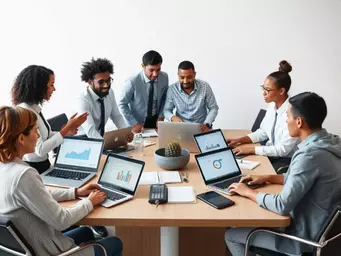

Cultural Exchange Drivers
Influencer's Role in Change
Identity Shaping Factors
Psychological Impact